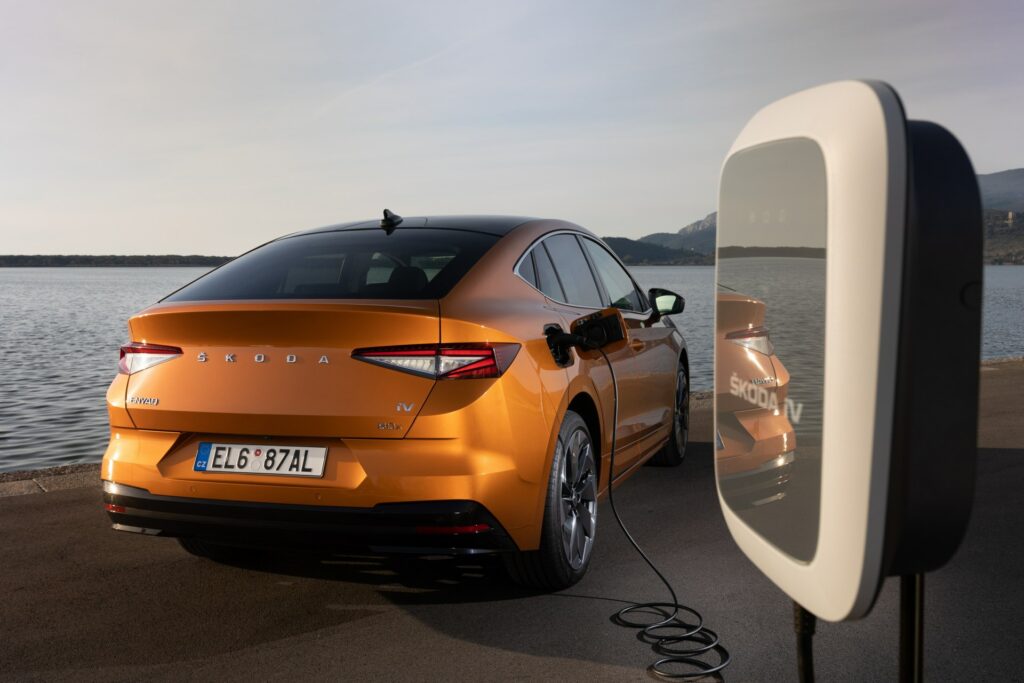Škoda is planning to cut its CO2 fleet emissions by more than a half by the beginning of the next decade, as part of its 2030 strategy.
Environment, Social Responsibility and Governance & Economy are the three pillars of Škoda’s Sustainability Strategy 2030, it said. The environmental pillar includes transforming the plants into zero-impact factories, the social pillar focuses on training and development measures for employees and the governance & business pillar covers the issue of integrity.
Explaining its long-term strategy, the company said it will focus on sustainable production and to achieve that it will use recyclable materials in its cars, as well as consistently recycling the high-voltage batteries from e-vehicles.
The company will be launching three new all-electric models by 2026, aiming to increase the all-electric share of its European vehicle sales to over 70% by 2030.
The company said all three Czech plants will be operating with net-zero carbon emissions by 2030 and the production plants in India will be completely CO2-neutral by 2025. The component plant in Vrchlabí had met this target by the end of 2020.
The company said it is increasingly opting for natural, recycled and recyclable materials such as those used in the Škoda Vision 7S concept car. In addition to metals and glass, recycled plastics are already being incorporated into new vehicles.
The company said it compensates for currently unavoidable CO2 emissions during production by purchasing certified carbon credits. In addition, the company is supporting the expansion of renewable energy sources in Europe.
“At Škoda and in the Volkswagen Group, we have set ourselves the goal of recovering more than 95%, significantly more than the EU target of 85%. What we want above all is to reuse as many of the recycled materials as possible ourselves and keep them in a cycle,” Johannes Neft, Škoda Auto Board Member for Technical Development, said adding they are continuously researching even more efficient recycling processes and new materials, preferably from natural, renewable sources or even waste products.
In partnership with the energy service provider ČEZ, the company will be commissioning the Czech Republic’s third-largest rooftop photovoltaic system at its main plant in Mladá Boleslav in late 2022 or early 2023. The project will deliver a nominal output of 2,300 kW, generating more than 2,200 MWh of electricity per year.
The company has come up with an idea to extend the service life of batteries from electric vehicles and reduce their carbon footprint. In a second life cycle, the batteries are installed in stationary energy storage systems. Škoda dealers can use these energy storage systems, for example, as charging stations and for lighting and air conditioning in showrooms and workshops, it said.
Batteries from the all-electric Enyaq iV family, as well as the plug-in hybrids, enter a second life cycle after being used in the car. The capacity of the stationary storage units is up to 300 kWh so fast charging stations with a transmission power of up to 150 kW can also be supplied.
